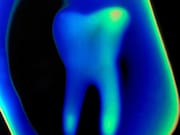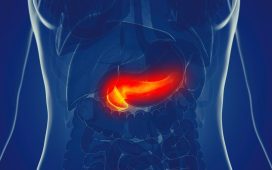In site-specific analyses, significant correlation seen for poor oral health with hepatocellular carcinoma
FRIDAY, June 21, 2019 (HealthDay News) — Self-reported poor oral health is not associated with gastrointestinal cancer risk, although it may be associated with hepatobiliary cancer, specifically hepatocellular carcinoma, according to a study published online June 8 in the United European Gastroenterology Journal.
Haydée W.T. Jordão, Ph.D., of the Centre for Public Health at Queen’s University Belfast in Northern Ireland, and colleagues examined the correlation between oral health conditions and gastrointestinal cancer risk for 475,766 participants from the U.K. Biobank cohort.
The researchers detected 4,069 gastrointestinal cancer cases during an average follow-up of six years, of which 13 percent self-reported poor oral health. No correlation was detected between self-reported poor oral health and risk for gastrointestinal cancer (hazard ratio, 0.97; 95 percent confidence interval, 0.88 to 1.07). An increased risk for hepatobiliary cancer was seen among those with poor self-reported oral health in site-specific analysis (hazard ratio, 1.32; 95 percent confidence interval, 0.95 to 1.80), and this risk was stronger for hepatocellular carcinoma (hazard ratio, 1.75; 95 percent confidence interval, 1.04 to 2.92).
“The liver contributes to the elimination of bacteria from the human body,” Jordão said in a statement. “When the liver is affected by diseases, such as hepatitis, cirrhosis, or cancer, its function will decline and bacteria will survive for longer and therefore have the potential to cause more harm. One [bacterium], Fusobacterium nucleatum, originates in the oral cavity but its role in liver cancer is unclear. Further studies investigating the microbiome and liver cancer are therefore warranted.”
Copyright © 2019 HealthDay. All rights reserved.








